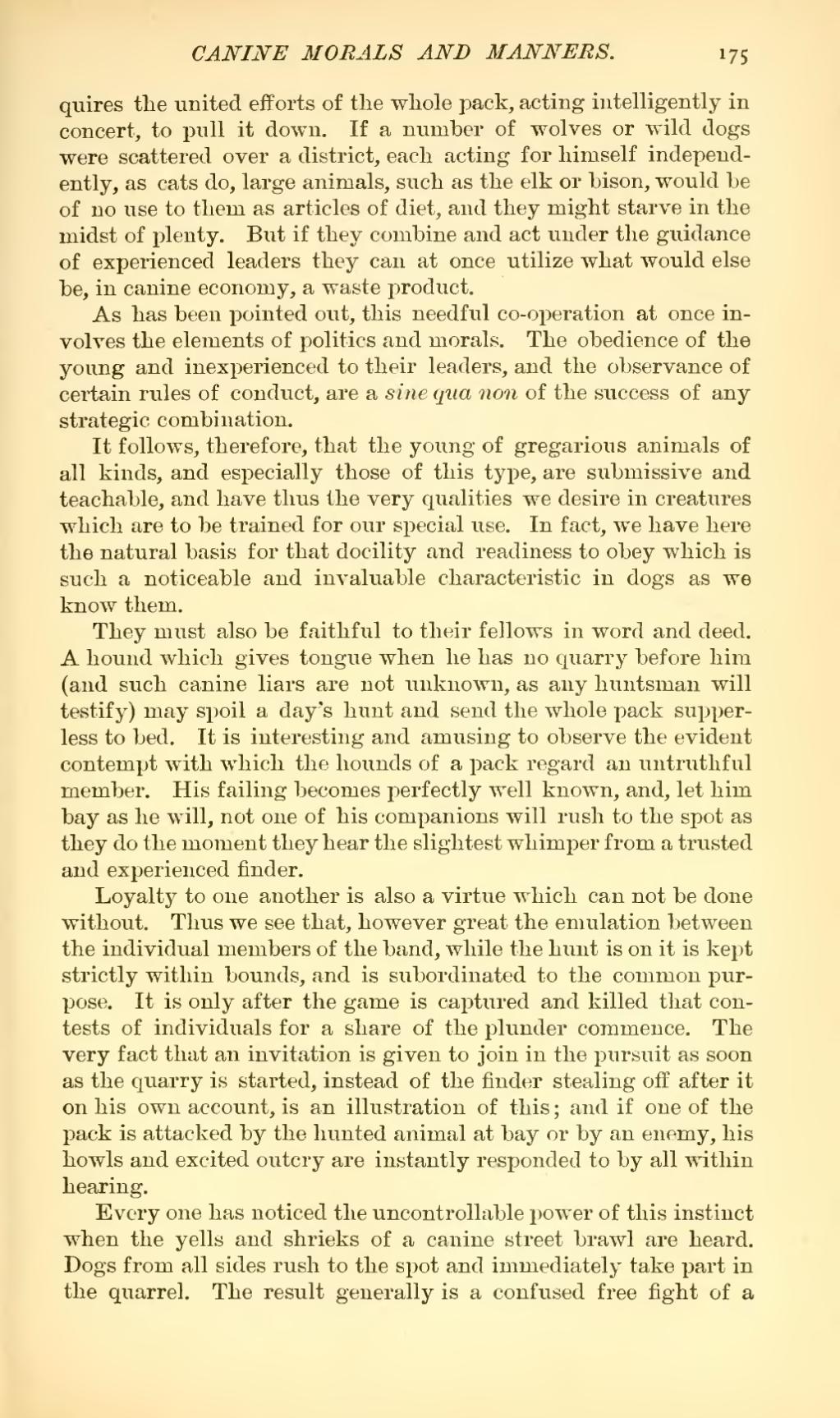quires the united efforts of the whole pack, acting intelligently in concert, to pull it down. If a number of wolves or wild dogs were scattered over a district, each acting for himself independently, as cats do, large animals, such as the elk or bison, would be of no use to them as articles of diet, and they might starve in the midst of plenty. But if they combine and act under the guidance of experienced leaders they can at once utilize what would else be, in canine economy, a waste product.
As has been pointed out, this needful co-operation at once involves the elements of politics and morals. The obedience of the young and inexperienced to their leaders, and the observance of certain rules of conduct, are a sine qua non of the success of any strategic combination.
It follows, therefore, that the young of gregarious animals of all kinds, and especially those of this type, are submissive and teachable, and have thus the very qualities we desire in creatures which are to be trained for our special use. In fact, we have here the natural basis for that docility and readiness to obey which is such a noticeable and invaluable characteristic in dogs as we know them.
They must also be faithful to their fellows in word and deed. A hound which gives tongue when he has no quarry before him (and such canine liars are not unknown, as any huntsman will testify) may spoil a day's hunt and send the whole pack supper-less to bed. It is interesting and amusing to observe the evident contempt with which the hounds of a pack regard an untruthful member. His failing becomes perfectly well known, and, let him bay as he will, not one of his companions will rush to the spot as they do the moment they hear the slightest whimper from a trusted and experienced finder.
Loyalty to one another is also a virtue which can not be done without. Thus we see that, however great the emulation between the individual members of the band, while the hunt is on it is kept strictly within bounds, and is subordinated to the common purpose. It is only after the game is captured and killed that contests of individuals for a share of the plunder commence. The very fact that an invitation is given to join in the pursuit as soon as the quarry is started, instead of the finder stealing off after it on his own account, is an illustration of this; and if one of the pack is attacked by the hunted animal at bay or by an enemy, his howls and excited outcry are instantly responded to by all within hearing.
Every one has noticed the uncontrollable power of this instinct when the yells and shrieks of a canine street brawl are heard. Dogs from all sides rush to the spot and immediately take part in the quarrel. The result generally is a confused free fight of a

